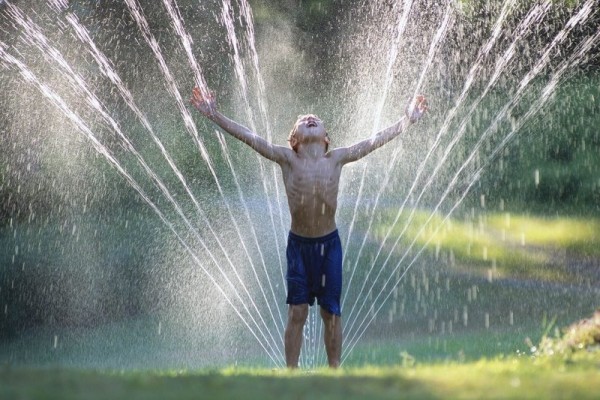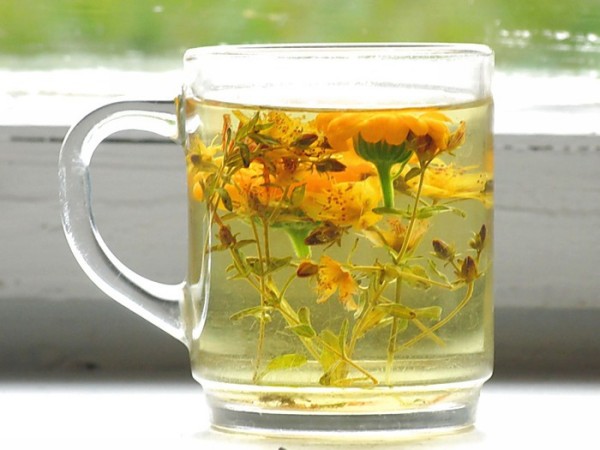Pollakiuria in children: why frequent urination occurs
Pollakiuria in children - frequent urination (more than 15 times) in the daytime. Usually the disease is caused by a pathological condition of the urinary tract but there may be other reasons. Why can a child have frequent urge to urinate?
If the causes of pollakiuria are not associated with pathologies, then the urge and frequent urination in children are due to inflammatory processes or infectious diseases. It is observed mainly in boys aged 5-6 years.
- Causes may be related to bladder or urinary tract disease (inflammation, stones, infection).
- Kidney diseases of a chronic and inflammatory nature (renal failure, pyelonephritis).
- There are endocrine causes: diabetes and diabetes insipidus.
- Nervous strain associated with a change of scenery or a stressful situation (scandals in the family, child discrimination, etc.).
- Colds (flu, SARS).
- The reasons may be in infection with helminths (pinworms).
- Diuretics (treatment with diuretics).
- Excessive consumption of fluids (carbonated drinks) and diuretic products (watermelons, cucumbers, citrus fruits, melons, pineapples, cranberries, tomato juice, etc.).
- Deterioration of living conditions.
Sometimes frequent painless urination, especially in an infant, can be caused by a pathology or chronic disease of the kidneys and urinary tract in the mother.
Symptoms
The first sign of pollakiuria is the frequent urge to urinate. If the child has painless urination, You should pay attention to the diet and the amount of fluid you drink.
If you sent your child to kindergarten or there was a sudden change of scenery, frequent urination in a child may be in the nature of a nervous breakdown.
When does a child with frequent urge to urinate there is a feeling of incomplete bowel movement, which is accompanied by discomfort, hurry to see a doctor. Especially if you watch it for several days. After the examination and the delivery of basic tests (blood, urine), the doctor will recommend either a more thorough examination (ultrasound, neuropathologist), or, based on the results of the tests, he will be able to make a final diagnosis.
Pyelonephritis, urethritis, cystitis
In case of infectious diseases (cystitis, urethritis, pyelonephritis), the child's temperature rises (it can reach 40 ̊С), accompanied by false urge to urinate. Older children complain of painful bowel movements, babies cry, refuse to use the potty. For infectious diseases of an inflammatory nature, it is characteristic cloudy urine, sometimes blood clots may be present in it. In the blood test, signs characteristic of inflammation (the presence of leukocytes, epithelial cells, single erythrocytes) are found.
neurogenic bladder
Violation of the innervation of the bladder can also cause frequent urination in children, and sometimes urinary incontinence. For the purpose of specification of the diagnosis, consultation of the neuropathologist is necessary. It is necessary to do an ultrasound of the kidneys before and after urination, as well as an x-ray of the spinal column.
Endocrine diseases
Diabetics also experience frequent, painless urination with large volume of fluid. An important symptom to watch out for is dry mouth and thirst after a bowel movement. Diabetes can be diagnosed by testing urine for sugar.
The same symptoms are observed in diabetes insipidus. Pathology is associated with a lack of a hormone responsible for the concentration work of the kidneys. If you reduce the amount of fluid a child drinks per day, the general condition will quickly worsen, which will lead to dehydration.
Urine taken for analysis has a low density, it can be compared in density with ordinary distilled water.
Urolithiasis disease
With urolithiasis, there are frequent urges to urinate, in which partial emptying occurs, accompanied by painful sensation in the urinary tract and in the lower abdomen. Sometimes pain can be felt shooting in the lumbar region. Salts are found in the analysis of urine.
Treatment
Treatment is prescribed by a doctor after a detailed examination and final diagnosis. In addition to a pediatrician, an examination by a urologist, gynecologist, nephrologist and neuropathologist may be necessary. After all, pollakiuria is only a concomitant symptom against the background of the underlying disease.
Medical
Most often anticholinergic drugs are prescribed. If your child has been diagnosed with inflammation caused by an infection, antibiotics are included in the treatment. Preliminary it is recommended to undergo a sensitivity test.

You can not repeatedly prescribe the same drugs. If you are advised medication that your child has already taken, let the doctor know.
To completely get rid of the infection, you need to undergo a full-fledged treatment, without canceling the medication yourself after the child's condition improves. Any untreated infection can become chronic. With subsequent exacerbation, it will be harder to cure.
Physiotherapy
In inflammatory diseases, physiotherapy procedures are more effective:
- electrophoresis and stimulation;
- hyperbaric oxygen therapy (HBO);
- thermal procedures;
- laser therapy;
- amplipulse and ultrasound;
- diadynamic therapy, etc.
In case of psychosomatic disorders and nervous breakdown, the treatment is prescribed by a psychotherapist. It can be a sedative herbal tea and regimen recommendations (walking, playing sports or physical education, hardening, etc.). For overactive bladder specific exercises for the pelvic muscles.
If stones are found in the bladder or kidneys, as well as if tumors are detected that could cause frequent urination, surgery is performed.
Folk methods
- Recommend stick to a diet and completely exclude sweet soda, salty and spicy water from the diet, limit sweets. Try to give your child light, low-fat foods.
- Have a beneficial effect decoctions of herbs"bear ears", corn stigmas, bearberry. Brew and infuse in a thermos. Rosehip decoction helps, boil the berries for 7-10 minutes and insist, you can also brew in a thermos. Pharmacies sell ready-made phyto-collections, which are used for cystitis, pyelonephritis, urethritis and urolithiasis.
- It is very important for inflammatory diseases that your child does not freeze, feet should always be dry and warm.
Prevention
For the prevention of childhood pollakiuria, it is necessary:
- calm home environment;
- gradual adaptation of the child to new conditions (visiting a kindergarten);
- mandatory preventive examinations by a doctor in a clinic;
- timely contact with a specialist when the slightest signs of the disease appear.





